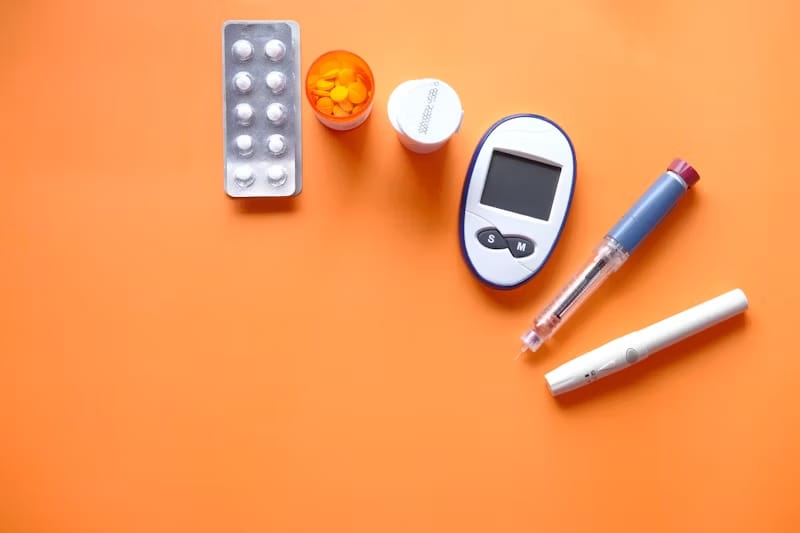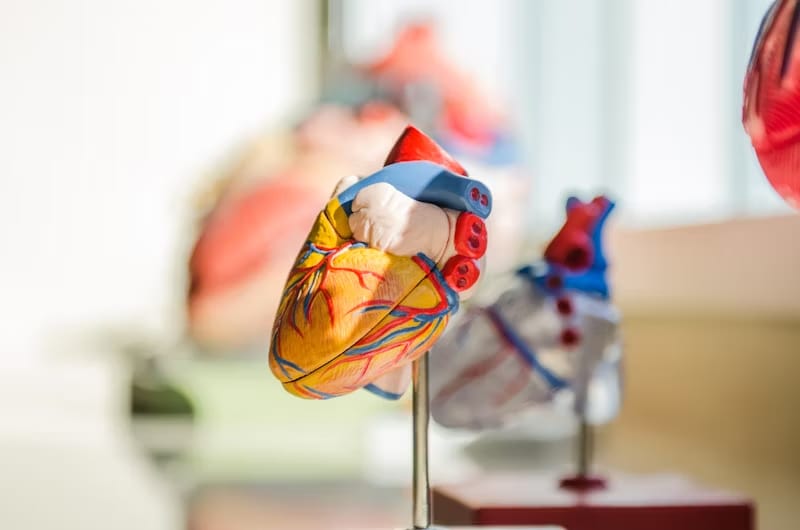- Aeviva
- Posts
- The 3 Diseases Running the Modern World
The 3 Diseases Running the Modern World
What’s driving them, how we treat them, and how to fight back without a prescription
We’ve gotten good at managing disease. But terrible at preventing it. Diabetes, heart disease, and depression are now so common they feel almost expected. These aren’t random or genetic fate. They’re symptoms of how we eat, sleep, move, and stress — stacked over decades.
This issue isn’t here to scare you. It’s here to give you the roadmap. We’ll break down the root causes, what the standard treatments miss, and what science-backed changes you can make today to tilt the odds in your favor.
Join over 4 million Americans who start their day with 1440 – your daily digest for unbiased, fact-centric news. From politics to sports, we cover it all by analyzing over 100 sources. Our concise, 5-minute read lands in your inbox each morning at no cost. Experience news without the noise; let 1440 help you make up your own mind. Sign up now and invite your friends and family to be part of the informed.
1. Type 2 Diabetes

This isn’t just about sugar. It’s about metabolic gridlock.
When your cells stop responding to insulin, your blood fills with glucose that can’t get where it’s supposed to go. The result: fatigue, cravings, brain fog, damage to nerves, eyes, kidneys, and more.
📊 Did you know?
In the year 2000, there were 151 million diabetics globally. In 2023, there were over 537 million. That’s more than triple in one generation.
🧪 Beyond meds:
Metformin and GLP-1 drugs help — but they don’t fix your cells.
Berberine has been shown in multiple studies to reduce fasting glucose and HbA1c with similar effects to metformin.
Magnesium deficiency, present in over 50 percent of diabetics, reduces insulin sensitivity.
A 15-minute walk after a meal can cut blood sugar spikes by up to 30 percent.
✅ Interactive check:
How many of these apply to you?
You feel tired after carb-heavy meals
You crave something sweet mid-afternoon
You wake up thirsty or to pee
You rarely do strength training
2 or more? Your insulin response may already be slowing.
2. Cardiovascular Disease

It’s not just about cholesterol. It’s about inflammation and endothelial damage.
Plaque builds up in your arteries when blood vessels are damaged and cholesterol gets stuck inside. Over time, this leads to hypertension, heart attacks, and strokes.
📊 Stat shocker:
Cardiovascular disease causes 1 in every 3 deaths worldwide. That’s over 18 million people each year.
🔍 What really helps:
Statins can reduce LDL, but they also lower coenzyme Q10 — a nutrient your heart relies on for energy.
Omega-3s have been shown to reduce triglycerides and lower blood pressure.
Garlic extract supports nitric oxide production, which relaxes blood vessels.
Aerobic exercise improves endothelial function and reduces inflammation markers like CRP.
✅ Mini quiz:
Do you feel dizzy or get pressure headaches?
Are your triglycerides over 150 mg/dL?
Is your resting heart rate above 80?
Do you sit more than 8 hours per day?
If yes to 2 or more, your heart health might need support.
3. Depression & Anxiety

This isn’t just in your head. It’s also in your gut, mitochondria, and nervous system.
Mood disorders are increasingly tied to inflammation, gut dysbiosis, nutrient deficiencies, and circadian disruption. SSRIs help some people. But many report feeling flat, tired, or numb.
📊 Surprising stat:
Over 75 percent of antidepressants are prescribed by general practitioners, not psychiatrists. And over half of patients say they don’t feel significantly better.
🧠 Hidden drivers:
Most serotonin is produced in the gut. Dysbiosis disrupts this pathway.
Low magnesium levels are linked to increased anxiety and poor sleep.
Regular aerobic exercise increases brain-derived neurotrophic factor (BDNF), which improves mood and neuroplasticity.
Vitamin B6, B12, and omega-3 EPA support neurotransmitter balance.
✅ Gut-brain check-in:
Do you feel better after meals or worse?
Have you taken antibiotics in the last 2 years?
Do you sleep poorly even if you feel exhausted?
Do you get sick often or have bloating?
These are signs your mood may be gut-driven.
Diabetes, heart disease, and depression are not inevitable. They are expressions of deeper imbalance — and that makes them reversible, preventable, and manageable far beyond medication.
Start where you are. If all you do this week is walk after lunch, eat one extra vegetable, or get 15 minutes of morning sun, you’re not being healthy. You’re being strategic.
Take-Home Summary
Diabetes is a dysfunction of energy handling. It improves with movement, blood sugar control, and insulin-sensitizing nutrients.
Heart disease is mostly preventable through nutrition, cardio, and inflammation reduction. Statins help but don't solve the full picture.
Depression is often a whole-body issue. Supporting the gut, reducing stress, and correcting nutrient gaps makes a measurable difference.
You don’t have to overhaul your life. You just need to outsmart your symptoms.


Reply